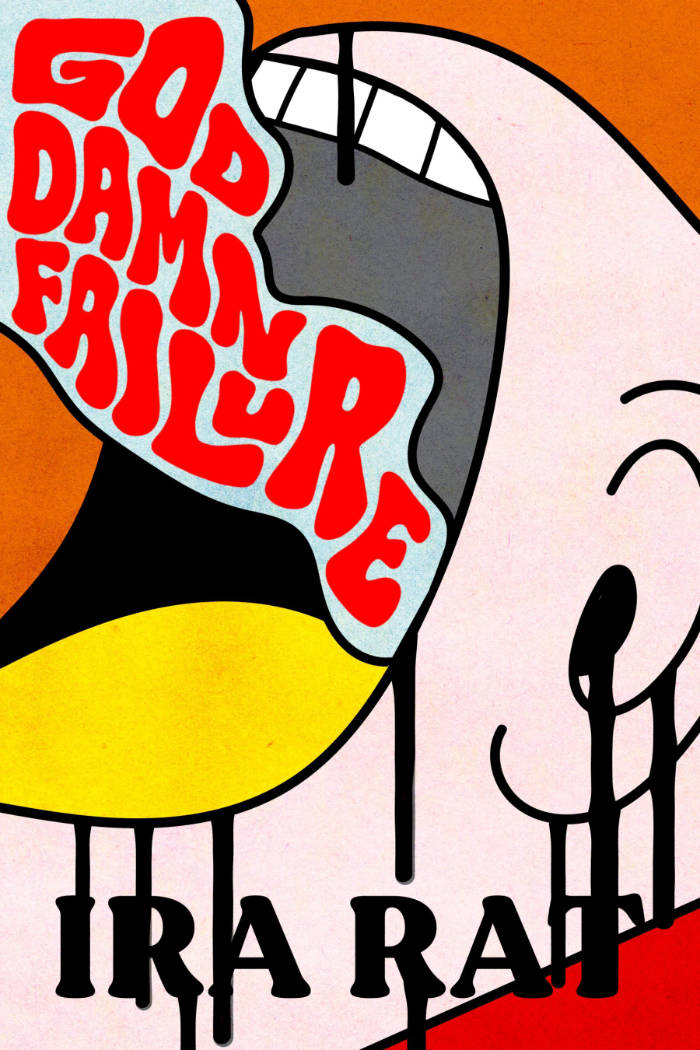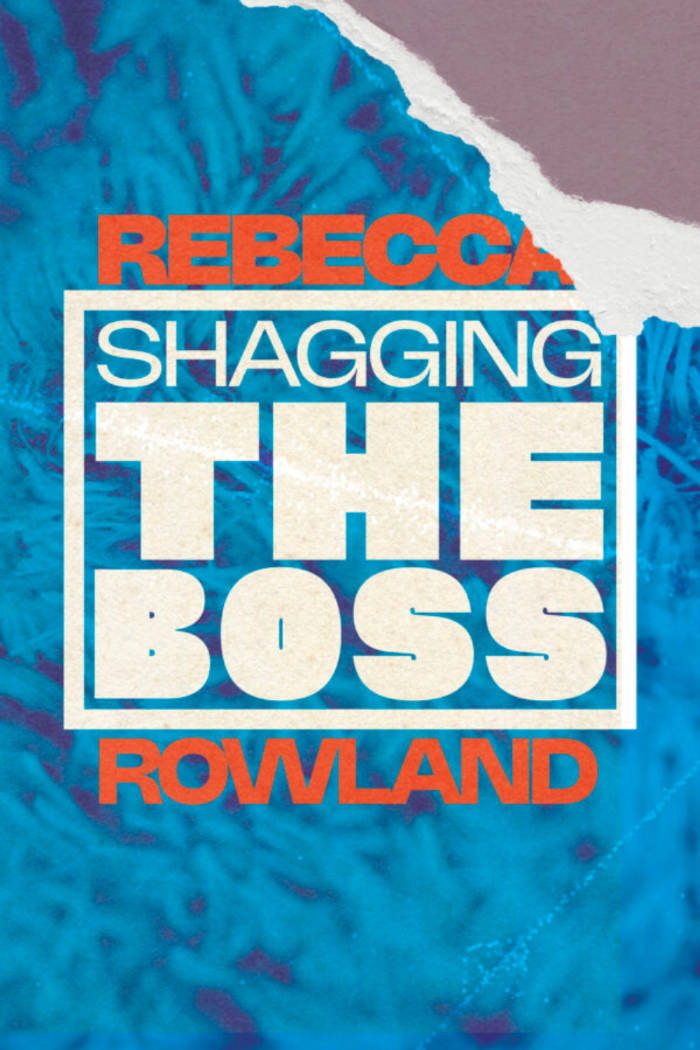
Goddamn Failure
Goddamn Failure gathers the early grotesque and absurd works of cult writer Ira Rat for the first time. Many of them are previously unpublished.
This book is not intended for children or people with good taste.

Goddamn Failure gathers the early grotesque and absurd works of cult writer Ira Rat for the first time. Many of them are previously unpublished.
This book is not intended for children or people with good taste.

Rebecca Rowland is one of the sharpest writers that I know. This little book combines elements of life in the publishing industry, #MeToo, and a literal boogeyman. It’s long been my desire to do more “social horror.” And Shagging the Boss is the stick I use to measure other submissions in that vein. (Back Cover Text) “Lesson number one: don’t get attached to anyone. Being a cannibal is the only way to truly succeed in this business.” He placed one hand on the door handle, then thought a moment and smiled to himself. “The problem is, once you take a bite, it will never be enough.” After a fortuitous encounter at a local book convention, a liberal arts graduate accepts a position at a flashy publishing company under the tutelage of its charismatic owner only to learn that the press is led, and fed, by a literal boogeyman.
“Rowland tells an exceptionally tight and fast-paced tale about a unique legendary creature stalking the modern publishing industry” — Michael Arnzen, Bram Stoker Award-winning author of Licker and 100 Jolts
“Rowland’s tale is a transgressive mindf*ck that will leave you irreparably unnerved” — L. Stephenson, author of The Goners
“Rowland has a narrative mastery that makes you feel as if a good friend is pulling you in close to tell you some special secret…You’ll be left shook” —Tim Murr, Stranger With Friction

Sam Richard, Jo Quenell and 2 more
Blending splatterpunk, body horror, and transgressive fiction, Teenage Grave 2 immerses readers in a world of unrelenting terror. This masterful work of macabre fiction assaults the senses and challenges perceptions of safety, leaving readers deeply unsettled. Featuring Sam Richard, Justin Lutz, Brendan Vidito and Jo Quenell.

Featuring poems and short stories by Coco Gordon Moore, Nate Lippens, Jimmy Cooper, Danielle Chelosky, Matthew Kinlin, and Thomas Moore, as well as an interview of Jack Skelley by Lydia Sviatoslavsky and photographs by David Catalano. Edited

Chickens have a collective soul. Heaven is full of the skateboarders you kissed in middle school. If the algorithm is its own hell, Lauren Cook, author of the critically (and uncritically) acclaimed Sex Goblin, stands in front of it fully armored. I Love Shopping invites its readers to inhabit a world just like ours, reflected through a big, benevolent funhouse mirror.
First published in a limited edition, this is the first trade edition of the cult classic.
.jpg)
Charismatic Spirals is for an America circa 2024, where poetry—the art of developing new means of speaking—has never been of such artistic, technological and political consequences.
An archetypal outsider, Will Alexander released his first poetry collection aged forty-four while working at the Los Angeles Lakers' ticket office. Three decades on, he has ascended to the legendary status of the city's great living surrealist, existing, as Eliot Weinberger wrote, in a state of "imaginal hyperdrive," with forty such collections to his name.
Operating at the edge of language, Alexander deploys words in a way that feels prophetic—human psyches synthesize with technological artifacts; atoms and archetypes collide; bodies are vacated, voices are newly incarnated. His America—like Glissant's—is multinational and—like Coover and Spiegelman's—multivalent and symbolically unstable. That is to say, he belongs to an America circa 2024, where poetry—the art of developing new means of speaking—has never been of such artistic, technological, and political consequence.
In doing so, Alexander draws from a vast array of influences, from luminaries like Aimé Césaire, Bob Kaufman, Andre Breton, Antonin Artaud, and Philip Lamantia, to holistic visions such as Sri Aurobindo's Integral Yoga, the Mayan numerical system, and Cheikh Anta Diop's perspectives on ancient Egypt. In a preview of Charismatic Spirals in the New York Times, Anne Boyer captured the essence of his work: "visionary poetry [that] achieves its effect through sound, not image...Cadence [that] can shatter us, set the world ablaze."
Read it syllabically, surf it quickly—there is no single way to approach this work.
Will Alexander (born 1948 in Los Angeles) is an African-American artist, philosopher, poet, novelist, essayist and pianist.

Pleasure Beach is a queer love story from the North West’s saucy seaside paradise, Blackpool, on one day: 16 June 1999. Written in multiple voices and styles, Pleasure Beach follows the interconnecting journeys and thoughts of three young women over the course of 24 hours and over 18 chapters which are structured and themed in the same way as James Joyce’s Ulysses.
Hedonist and wannabe playwright Olga Adessi, 19, is struggling along the prom to get to her morning shift at the chippy with a monstrous hangover, trying to remember exactly what happened with Rachel Watkins, 19, a strange and fragile girl she had an encounter with the night before. Former gymnast and teenage mum Treesa Reynolds, 19, is off to the Sandcastle Waterpark with her mum Lou and daughter Lulu, looking forward to a sausage and egg McMuffin on the way.
Pleasure Beach breathes and exhales the unique sea air, fish and chips, donuts and candyfloss scents of Blackpool, bringing to life everything the town is famous for, portraying the gritty magic and sheer unadulterated fun of the city and its people across a spectrum of sensory experiences and emotions.

Composed of stories, fragmentary essays, and even press releases Stagg has been commissioned to write, Artless captures the media landscape lived and generated in New York during the past half decade. Since the 2016 publication of her debut novel Surveys, Stagg has positioned herself as an in-demand expert on, and critic of, the psychic experience of self-mythology within the cruelly optimistic metaverse of infinite branding. Part voyeur and part participant, Stagg continues her exploration of the branded identity and its elusive, bottomless desire for authenticity.
Natasha Stagg is the author of a novel, Surveys, and a collection, Sleeveless: Fashion, Image, Media, New York 2011-2019. Her essays have appeared in the books Excellences and Perfections, Link in Bio: Art After Social Media, You Had To Be There: Rape Jokes, Intersubjectivity Vol. II: Scripting the Human, and 9th Berlin Biennale for Contemporary Art: The Present in Drag, among others.

Garréta’s first novel in a decade follows the mania that descends upon a family when the father finds himself in possession of a concrete mixer. As he seeks to modernize every aspect of their lives, disaster strikes when the younger sibling is subsumed by concrete.
Through puns, wordplay, and dizzying verbal effect, Garréta reinvents the novel form and blurs the line between spoken and written language in an attempt to confront the elasticity of communication.
Anne F. Garréta is a graduate of the Ecole Normale Supérieure, received her License de Lettres at the Université Paris 4 (Sorbonne), her Maitrise and her D.E.A at the Université Paris 7 (Diderot), and a PhD at New York University. The author of six novels, Garréta was coopted to the Oulipo in 2000. Her first novel, Sphinx (1986), which caused a sensation when Deep Vellum published its first English translation in 2015, tells a love story between two people without giving any indication of grammatical gender for the narrator or their lover. She won France’s prestigious Prix Médicis in 2002 and the Albertine Prize in 2018 for her book, Not One Day, which was also nominated for a Lambda Literary Award. Garréta teaches regularly in France at the Université Rennes 2, and more recently at Paris 7 (Diderot), and is a professor at Duke University.